Pakistani President Asif Ali Zardari makes a compelling case for restraint and regional cooperation in the aftermath of the Mumbai attacks in a NY Times op-ed, although I had a multi-stage reaction to the following passage, in particular: The world worked to exploit religion against the Soviet Union inAfghanistan by empowering the most fanatic extremists as an instrumentof destruction of a superpower. The strategy worked, but its legacy wasthe creation of an extremist militia with its own dynamic. What at first seemed like a disingenuous gloss on Pakistan’s instrumentalization of the Taliban on second reading seemed to put the longer […]
India Archive
Free Newsletter
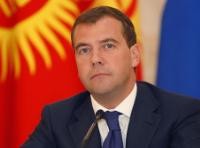
Unlike his week-long trip to South America in late November, peripatetic Russian President Dmitry Medvedev’s recent two-day visit to India attracted little notice in Washington — and for good reason. The Russian and Indian governments did sign important agreements, but none that marked any fundamental transformation in their bilateral relations, or that directed it in ways that threaten American security interests. If anything, the trip highlighted the fact that countering terrorism in South Asia is a shared goal of Russian, American, and regional officials, thereby raising the possibility of enhanced Russian-American security cooperation in this important area. This was Medvedev’s […]
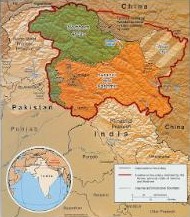
The commando-style terror attack in Mumbai, India, that claimed nearly 200 lives in late November highlights the ongoing danger Islamic extremists pose to even the most developed democracy in South Asia. The attack — and the diplomatic maneuvering in its wake — also casts light on the increasingly important network of relationships between India, Pakistan, Afghanistan and the United States. These four countries — three of them nuclear states — will likely decide the future of South Asia in an era of terrorism, coalition warfare and national rapprochement. The U.S.-led “war on terror,” which has seen scores of nations deploy […]
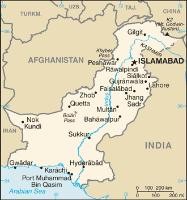
Ten years ago, Bruce Riedel sent a memo to his boss, then-President Bill Clinton. In it, he called Pakistan the most dangerous country in the world. A ticking time bomb. Riedel’s reasons were many. Armed with nuclear weapons, Pakistan sponsored terrorists, was awash in drugs and consistently teetered on the verge of war with neighboring India, its nuclear rival. Later, he called it a “hothouse of terror.” Today, little has changed and Riedel, reportedly tapped as President-elect Barack Obama’s Pakistan adviser, continues to bristle at the problems the nation of 165 million people poses for the United States. “All of […]

In the aftermath of the Mumbai attacks, attention has increasingly focused on Pakistan and the troubling, if opaque, links between its military intelligence apparatus and Islamic terrorist groups. But despite the very real risk of a widening of the regional war already underway in Afghanistan, the problems emanating from Pakistani soil defy military solutions. In a WPR Spotlight, we examine The Pakistan Problem. In Four Countries’ Relations Will Decide Region’s Future, David Axe examines the complicated dynamics at play between Pakistan, its two neighbors, India and Afghanistan, and the United States. In Advisers’ Views Provide Clues to Obama Approach Seth […]
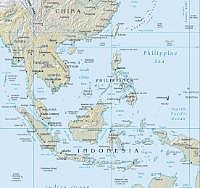
TOKYO — Last month the Indian Navy sunk what it believed to be a Somali pirate “mother ship” off the coast of Somalia. The vessel turned out to be a Thai trawler, but the intervention nevertheless highlighted an increasing willingness among Asian nations to take a lead in tackling the growing piracy problem that has garnered worldwide attention and alarm. Notwithstanding the Indian misstep, the results so far are impressive. While the number of attacks off the coast of Africa, including the Gulf of Aden, has jumped about 75 percent this year, Asia’s Malacca Straits had experienced just two attacks […]
In the aftermath of the Mumbai attacks, the very alarming scenarios of India-Pakistan conflict, as well as the question of the degree of Pakistani institutional involvement, have dominated the discussion. That’s fine and necessary. But Bruce Hoffman’s takeaway in his National Interest piece is noteworthy as well: The attacks demonstrate how a small number of armed and trainedterrorists can paralyze a city, stymie the security force, underminepublic confidence in the ability of government and the authorities torespond, and generate worldwide attention and publicity. At first glance, that seems relatively obvious. My own first reaction, in discussing the attacks with a […]
The Times of India is reporting that China has begun to put pressure on Pakistan to come clean on whatever they know and whoever they might have tabs on in connection with the militant groups potentially behind the Mumbai attacks. What remains uncertain is whether Beijing’s efforts will be directed towards addressing the problem of these groups infiltrating into India, or into China’s own Xinjiang province, where there is also an Islamic insurgency under way. The guiding logic behind the Asia Triangle feature that WPR is running this week (which was obviously planned months ago) is that America has gradually […]
For those of you who enter the site through the blog, I’d like to call your attention to our latest theme issue on the front page, the Asia Triangle. In three deep analysis pieces (M.K. Bhadrakumar on India here, Jing-dong Yuan on China here, and Arif Rafiq on Pakistan here), we examine the balance of power on the South Asian subcontinent between India, Pakistan and China, and how that might impact the emerging consensus calling for a “regional approach” to turn the tide in, and ultimately stabilize, Afghanistan. We’ve had this feature in development for a while now, and last […]
Just some quick thoughts on the Mumbai attacks before turning the subject over to our two cover stories that examine them from the Indian perspective (by M.K. Bhadrakumar) as well as from Pakistan’s (by Jayshree Bajoria). There are still a lot of unanswered questions regarding some of the moving parts. But what the attacks demonstrate more than anything else is the need to resist letting a handful of extremists set the foreign policy agendas of regional and global nuclear powers. In other words, there’s a need to formulate a better response than the Bush Doctrine to the ways in which […]

Last week’s attacks on the Indian city of Mumbai focused the world’s attention on what some are already calling the latest front in the War on Terror. Many questions remain as to the attackers’ origins as well as what, if any, ties they had to Pakistani terror groups previously operating in Kashmir, global terrorist networks like al-Qaida and the Pakistani military intelligence service. Two WPR articles put the attacks in their regional context:Mumbai Attacks Complicate U.S. Regional Policy, by M.K. BhadrakumarMumbai Attacks Put Scrutiny on ISI, by Jayshree Bajoria.
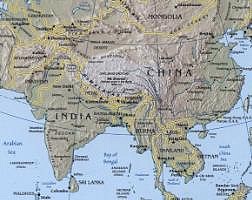
With the security situation in Iraq improved to the point that analysts no longer shrink from using the word “endgame,” Washington has increasingly turned its attention to the alarming situation in Afghanistan, where the insurgency has taken full advantage of safe havens on the Pakistani side of a border that exists largely in name only. Attempts to address the problem of how to intervene militarily without in turn destabilizing an already fragile Pakistan have led to an emerging consensus regarding a “regional approach,” one that includes the India-Pakistan rivalry as a key to stabilizing the South Asian subcontinent. But lurking […]
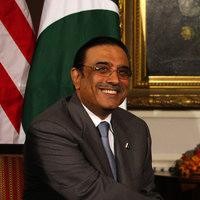
Pakistan’s Perpetual Precariousness On Nov. 26, 2008, terrorists laid siege to Mumbai, making the poshest area of India’s commercial capital a war zone for several days. The attacks once again raised the specter of an Indo-Pak war. Yet, earlier in the day, Pakistan’s Foreign Minister Shah Mehmood Qureshi had arrived in New Delhi to continue recently renewed peace talks with his Indian counterpart. The two South Asian states, playing to a script performed before, had in a short period of time taken two steps forward toward peace and 10 steps back. Relations between India and Pakistan are clearly fragile and […]
